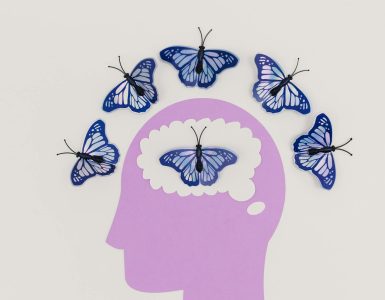Ever wonder why you sometimes make decisions that seem completely illogical? Or why you’re drawn to certain people, even when they’re not “good” for you? It’s not that you’re crazy; it’s just that the human brain is a wonderfully complex – and often surprisingly predictable – machine. Psychology reveals fascinating hidden patterns in how we think, feel, and act, patterns that can sometimes feel like glitches in the system, but are actually just quirks of our evolved minds.
The Power of (Un)conscious Biases
We like to think of ourselves as rational beings, making decisions based on logic and reason. But the truth is, our brains are constantly taking shortcuts, influenced by unconscious biases that subtly shape our perceptions and behaviors. Take confirmation bias, for example. This is our tendency to seek out information that confirms our existing beliefs, while ignoring information that contradicts them. Think about someone who believes climate change is a hoax; they might only read articles that support that viewpoint, dismissing scientific evidence as “fake news.” The Unexpected You: Hidden Springs of Human Action and Thought
Another sneaky bias is the availability heuristic. We tend to overestimate the likelihood of events that are easily recalled, often because they are vivid or recent. After seeing a news report about a shark attack, you might suddenly think shark attacks are far more common than they actually are, even though statistically, the chances of being bitten by a shark are incredibly low.
These biases aren’t always bad; they can be helpful mental shortcuts. But they can also lead to poor decisions, prejudice, and misunderstandings. Recognizing their influence is the first step to mitigating their effects.
The Chameleon Effect: Mimicking Our Surroundings
Have you ever noticed how you unconsciously mirror the body language of someone you’re talking to? This is called the chameleon effect, and it’s a powerful way we build rapport and connection. Studies have shown that people unconsciously mimic each other’s postures, gestures, and even facial expressions. This mirroring increases liking and empathy, making conversations flow more smoothly. Next time you’re chatting with a friend, pay attention; you might be surprised how much you’re subtly imitating them!
The Bystander Effect: Why We Don’t Help
The infamous Kitty Genovese case highlighted a disturbing phenomenon: the bystander effect. This refers to the tendency for individuals to be less likely to help a victim when other people are present. The more bystanders there are, the less likely anyone is to intervene. Why? Diffusion of responsibility plays a significant role – we assume someone else will take action, so we don’t feel personally responsible. This is a chilling example of how our social context can override our natural empathy.
The Stanford Prison Experiment: The Power of the Situation
The Stanford Prison Experiment, though controversial in its methodology, powerfully demonstrates how situational factors can drastically influence human behavior. Philip Zimbardo’s study randomly assigned participants to the roles of prisoners and guards in a mock prison. Within days, the “guards” became increasingly abusive, and the “prisoners” showed signs of psychological distress. The experiment revealed the terrifying potential for even ordinary people to commit terrible acts when placed in a powerful social situation.
The Milgram Experiment: Obedience to Authority
Similarly, Stanley Milgram’s obedience experiments showed how readily people will obey authority figures, even when it means inflicting pain on others. Participants were instructed to administer increasingly strong electric shocks to a “learner” (actually a confederate) for incorrect answers. A surprising number of participants continued to administer shocks even when the “learner” cried out in pain, demonstrating the potent influence of authority in shaping our actions.
Cognitive Dissonance: When Beliefs and Actions Clash
We all strive for consistency between our beliefs and our actions. When there’s a mismatch, we experience cognitive dissonance – a state of psychological discomfort. To reduce this discomfort, we often change our beliefs to align with our actions (or vice versa). For example, someone who smokes might downplay the health risks of smoking to justify their behavior.
The Halo Effect: The Power of First Impressions
First impressions matter more than we like to admit. The halo effect refers to our tendency to let one positive trait (e.g., attractiveness) influence our overall perception of a person. If someone is attractive, we might also assume they are intelligent, kind, and trustworthy, even without evidence. Conversely, a negative first impression can lead to the horn effect, where we assume negative traits based on a single negative attribute.
The Framing Effect: How Words Shape Our Choices
The way information is presented significantly impacts our decisions. The framing effect demonstrates how phrasing can alter our preferences. For instance, people are more likely to choose a medical treatment described as having a “90% survival rate” than one described as having a “10% mortality rate,” even though the outcomes are identical. This highlights how seemingly minor changes in language can have profound effects on our choices.
Conclusion: Embracing the Glitch
Understanding these hidden patterns in human behavior isn’t about labeling people or making excuses for bad behavior. It’s about gaining self-awareness, improving our decision-making, and fostering better relationships. By recognizing the influence of biases, situational factors, and cognitive processes, we can navigate the complexities of human interaction with greater insight and empathy. The “glitches” in our mental software are not flaws; they’re simply a testament to the remarkable, albeit imperfect, design of the human brain.

























Add comment